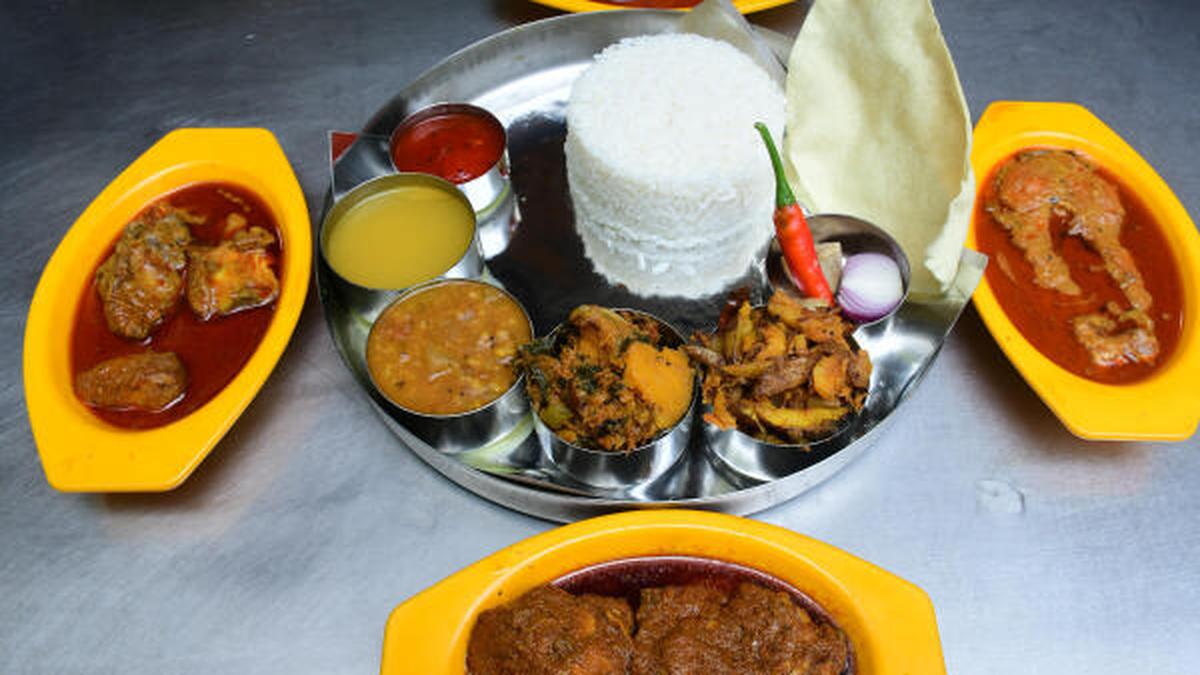
Try wholesome and pocket-friendly Bengali food at these messes in Chennai
The Hindu
Ahead of the Bengali New Year, we take a walk down a by-lane off Greams Road where a string of Bengali messes have been serving fresh and nutritious Bengali meals
It is 11am and TS Kolkata Mess is waking up from a slumber that resembles the unhurried countenance of Kolkata. This, however, is Greams Road, Chennai – where a line of humble eateries serving home-style Bengali food dots the sidewalk opposite Apollo Hospital.
Kailash Chandra Das, the owner of the mess, is from Odisha and speaks to his clients in crisp Bangla. “Many Bengalis come to the nearby hospital for treatment, and there is a demand for home-style meals ,” says Kailash.
As he speaks, one of his clients hollers: “Second batch maach kothay? ” (Where is the second refill of fish?)
The eatery was started almost 10 years ago. “Bengalis and Odias are the same for me. Like family,” he chuckles. The mess opens at 10am and serves breakfast, lunch and dinner. It is devoid of a physical menu card, Kailash rattles way the names of dishes like a rapper.
A customer saunters in with a hospital file in hand, asking for the lunch menu. To this, he quickly responds, “Sabzi bhaat (rice and vegetables), mach bhat (fish and rice), dim bhat (egg and rice), mangso (chicken), rui (Rohu fish), bhola (Barramundi fish), telapia (St Peter’s Fish), chingri (prawn), aila (Indian mackerel), pabda (Catfish), and tangra (small catfish).”
The fish is sourced from the local market. “We serve freshwater fish because Bengalis relish it. Our fish meals are priced between ₹ 50-100 which makes it budget-friendly too,” says Kailash.
Kailash’s mess rubs shoulders with SS Anachi Mess - another eatery serving bengali thalis through the day. Saroj Kumar Das, the manager from Odisha, says, “Most of our customers come from Bengal, Assam, Guwahati, Tripura and Bangladesh. Our hot-seller is the vegetarian thali priced at ₹80. It comprises rice, dal, a vegetable-based preparation and chutney. Most customers opt for this with an accompaniment of fish or chicken.”

On December 23, the newly elected office bearers of the Anna Nagar Towers Club, led by its president ‘Purasai’ B. Ranganathan, who is a former MLA, met with Tamil Nadu Chief Minister M. K. Stalin and conveyed their greetings. According to a press release, besides, ‘Purasai’ B. Ranganathan, the Anna Nagar Towers Club delegation that met Stalin at Anna Arivalayam, the DMK Party headquarters, included vice-president R. Sivakumar, secretary R. Muralibabu, joint secretary D. Manojkumar, treasurer K. Jayachandran and executive committee members N. D. Avinash, K. Kumar, N. R. Madhurakavi, K. Mohan, U. Niranjan, S. Parthasarathi, K. Rajasekar, S. Rajasekar, M. S. Ramesh, R. Satheesh, N. C. Venkatesan and K. Yuvaraj. Karthik Mohan, deputy secretary of DMK’s Information Technology Wing, was present on the occasion.












